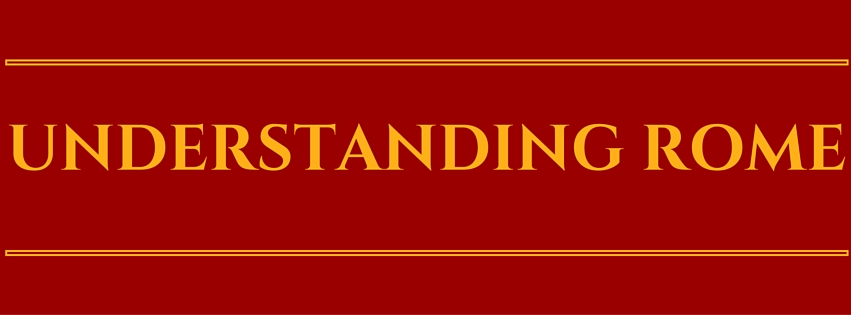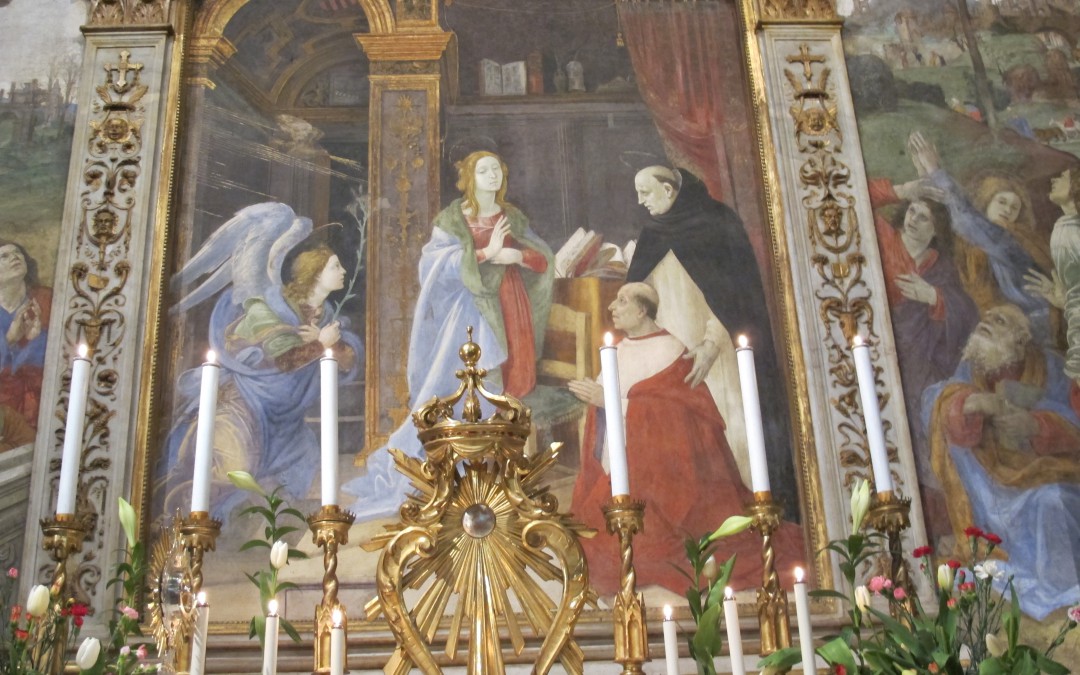This week my parents were in town and on Tuesday I was wandering around churches with my pa and Anthony Blunt’s book on Roman Baroque churches. (We did 16 that day, that’s where I get it from…).
The last of the day was Santa Maria sopra Minerva, not Baroque, but it was right there, and a peek at the wonderful Carafa Chapel (about which I wrote this) is too good to miss.
It was especially glorious, gleaming in the gloaming of the vast church. The altar was crammed with (real) candles and, best of all, the gate over which one normally has to peer was open, giving an excellent opportunity to view the frescoes. An earnestness of young robed monks (surely the correct collective noun?) took photos of themselves on their phones, a charming anachronism which jolted us out of the late 15th century.
Their selfies focused less on the exquisite paintings of Filippino Lippi and more on a reliquary containing what purported to be an arm bone (“perhaps an ulna, at a push”, said my father, doubtfully) of St Thomas Aquinas, one of the chapel’s dedications. A quick check of my phone and indeed it was the feast of Thomas Aquinas, who had provided us with a splendid bit of theatre before we slipped past the tomb of Beato Angelico and out of the back door into the evening.

St Thomas Aquinas crushing heresy, detail showing the equestrian statue of Marcus Aurelius at the Lateran Palace






Recent Comments